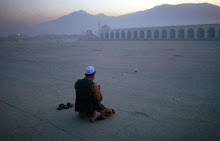It was a sunny day on 12th February 1949 when the leader of Muslim Brotherhood, Hasan al Banna was invited for a meeting with an Egyptian government minister in Cairo. At the venue, the minister never appeared and hence the brotherhood’s leader had to leave. While he was on the street to get a taxi, he was shot by unknown person.
The Brotherhood’s leader death was widely assumed as an officially planned assassination. Hasan al banna funeral was publicly banned by the then Egyptian government and only his father, brothers and some family female members were allowed to carry out his final ceremony.
Hasan al banna was a highly charismatic person and a sharp-minded school teacher who laid the foundation of Muslim Brotherhood in Egypt in 1928. This was the first mass based Islamic party, which overtly worked politically and within country’s legal framework. Brotherhood challenged the ascendancy of secular and western ideology in Egypt and in the whole of Middle East countries. Hasan al banna strongly felt that in the unislamic ideology lays the root of the decay of Islamic societies in the modern world, and advocated a return to Islam as a solution to the ills that had befallen Muslim societies. The message of Brotherhood had spread swiftly not only across the adjacent Arab countries but reached countries far away like Indonesia, Malaysia, Iran and Pakistan.
Hasan al banna’s achievement was creating a flexible and dynamic structure aiming to transform his vision into reality. He founded numerous schools, factories and mosques in less than 10 years. He was able to provide over a half million committed workers and twice as many supporters to the Brotherhood. The work of Brotherhood started to transcend the national borders. It was the time when Hasan was invited by the British ambassador for tea, complimented for his good character and admired for his work for the poor. He was told that it is in the Brotherhood’s interest to get assistance from British. Hasan politely listened to ambassador and told him that all of his money belongs to Egyptians and the time for British was soon coming to an end. This caused the starting of the conflict between him, British and the then Egyptian monarchy.
No one could have imagined the future of the then Egypt’s most influential and largest revivalist party after his founder, Hasan al banna was mercilessly murdered followed by a massive crack down on his party. Scores of his party members were arrested and subjected to worst physical torture inside the military jails. The party’s assets were confiscated. The situation not only lasted for months and years but for decades and any association with Brotherhood was consider as a serious and unforgivable crime.
The dawn of June 24th,2012 comes along with the election commission’s announcement that Muslim Brotherhood’s candidate, Mohammad Morsi, had won the country’s first contested presidential election, making him the first ever islamist president in the arab world. It took eight decades to Hasan al banna’s dream to come true. Morsi addressed to the tens of thousands at Tahrir square, “I’m your president, but not without you. I’m your president, but I’m not the best of you.”
Despite the time taking and tough period, The Egyptian socio political Muslim Brotherhood has shown its commitment to its cause and vision, given many decades before by Hasan al banna. It would be interesting to see how their counter parts in other countries especially in Pakistan would be performing in the Elections to come. Jamate Islami claims not only to have close ideological ties with Brotherhood, but due to the amazing similarity in organizational structure and working strategy, is considered to be the Muslim Brotherhood of Pakistan.
The political battle between Islamists and regimes all around the world is not over, it has not only begun but in fact has gained momentum. The brotherhood and such revivalists are emerging as significant forces in the politics of several Arab and non-Arab countries, either directly or through the movements they inspired.
They are appealing most to the masses and cultural conservatives who want their government and society to reflect and defend certain basic Islamic values and principles, and who favor a pragmatic and incremental approach to achieve these goals. The legacy of Hasan al-Banna is thus still presents, and will continue to shape the destiny of societies in the new millennium.
Courtesy: TheNewsBlog


Comments
Post a Comment